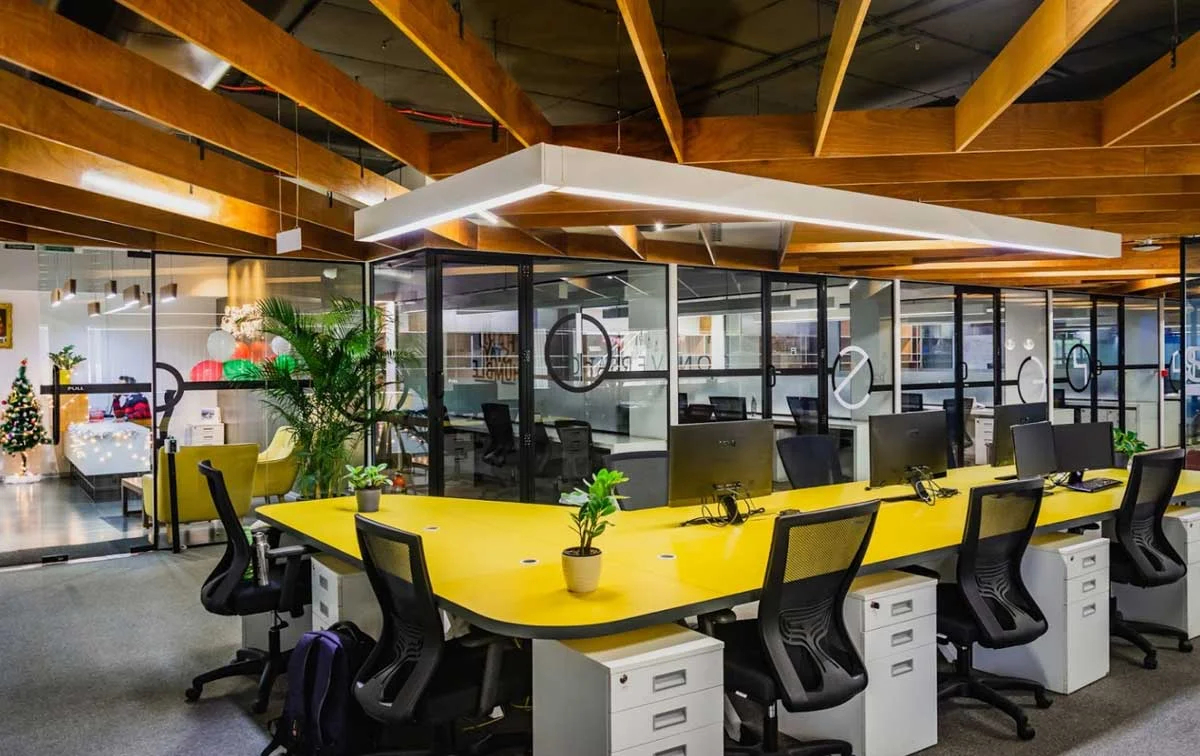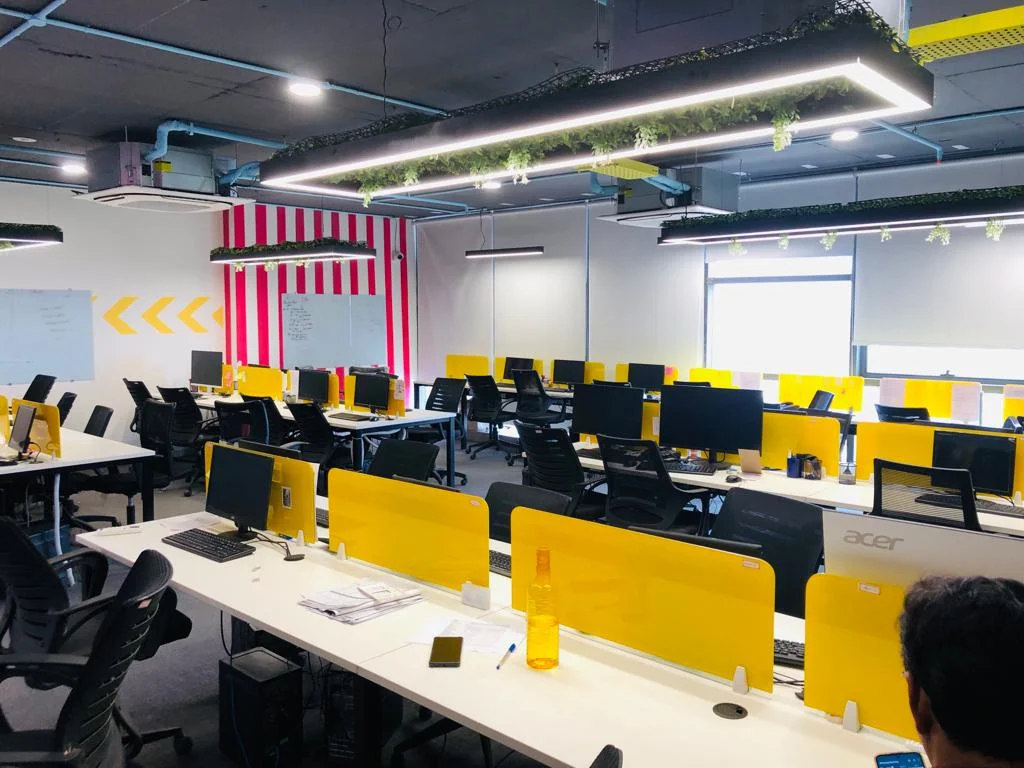After the outbreak of the Covid-19 epidemic, the corporate environment has undergone significant transformation. The demand for agility and resilience prompted organizations to reconsider their personnel management methods, and co-working spaces emerged as a game-changing option. These dynamic and adaptable workspaces have allowed businesses to set up a hub and spoke model, decentralizing their workers while assuring continuous operations.
The shift to hybrid work policies
Corporates are adopting hybrid work guidelines that put flexibility and work-life balance first since it’s getting harder to run operations from headquarters. The hub and spoke approach enables employees to work from remote workplaces closer to their homes or clients, saving commute time and improving personal well-being. This trend has resulted in the emergence of coworking spaces as an essential component of the corporate ecosystem.
The Driving Forces Behind Co-working Spaces
Several major factors have contributed to the growth of coworking spaces in India. Cost-effectiveness remains a primary priority, attracting freelancers and businesses looking for low-cost office solutions. Infrastructure is also important, with small and medium-sized firms (SMEs) prioritizing well-equipped locations that assist business operations. Large corporations value good office sites and travel convenience, making coworking spaces a compelling option.
Diverse models to meet diverse needs
To meet the diverse requirements of developing firms, startups, and freelancers, shared workspace operators provide a variety of office space options. These include business centers, serviced offices, incubation facilities, and popular coworking spaces. Coworking spaces often include open floor plans that encourage collaboration, networking, and on-demand workspace demands.
The Growth of Hybrid Cluster Environments
Hybrid cluster environments have emerged as a distinct and unique approach to collaborative workspaces. These venues blend the advantages of physical and virtual locations, utilizing cutting-edge technology to enable seamless communication and collaboration between remote and in-person attendees. The popularity of hybrid cluster systems has expanded dramatically as businesses embrace remote and hyper-flex work modules, which provide flexibility in an ever-changing corporate landscape.
A wide range of benefits
Coworking spaces provide several benefits for businesses of all sizes. For example, they are less expensive alternatives to standard office facilities, allowing firms to save on rent, electricity, and upkeep. This affordability enables businesses to allocate their resources more efficiently. Furthermore, coworking spaces provide scalability, allowing businesses to simply scale up or down based on their needs while reducing overhead costs.
One of the primary benefits of coworking spaces is the networking opportunities they offer. By cultivating a varied network, professionals have several opportunity to meet and collaborate with people from various industries. This encourages knowledge sharing and the cross-pollination of ideas, resulting in innovation and progress.
Flexibility is another important feature of coworking spaces. Professionals with 24/7 access can choose their working hours to accommodate diverse schedules. This is especially useful for freelancers and remote workers who need a dedicated workspace away from home. Such surroundings promote well-being, reduce distractions, and improve work-life balance.
Furthermore, coworking spaces provide access to amenities such as high-speed Internet, conference rooms, and other services, saving companies money on setup costs. Some co-working solution providers even provide customized workspaces based on unique business demands, resulting in a productive and efficient work environment.
Coworking spaces’ vibrant atmosphere promotes creativity, motivation, and a positive work culture. Furthermore, these locations benefit local economies by attracting experts and enterprises to the area. Furthermore, coworking spaces improve environmental sustainability by sharing resources, which reduces energy usage and trash.
Mentorship options abound in coworking spaces, allowing workers to connect with mentors or mentees and promote personal and professional development. These places also assist businesses attract talent by providing appealing work environments and strong communities.
Coworking spaces serve an important role in promoting niche markets and female entrepreneurship. They provide specialized tools and support for specific industries and communities, such as women-centric coworking spaces that foster a positive environment for female professionals and entrepreneurs.
Conclusion- Building a Brighter Future
As coworking spaces gain popularity, they are transforming the way people and organizations function. These dynamic workspaces create a flexible and adaptive atmosphere that encourages collaboration, innovation, and work-life balance. With a projected flexible space stock of more than 80 million sq ft by 2025, coworking spaces are positioned to play a critical role in shaping India’s work future.
With the ever-changing corporate landscape, these places will continue to shape the future of work by encouraging collaboration, creativity, and work-life integration.




